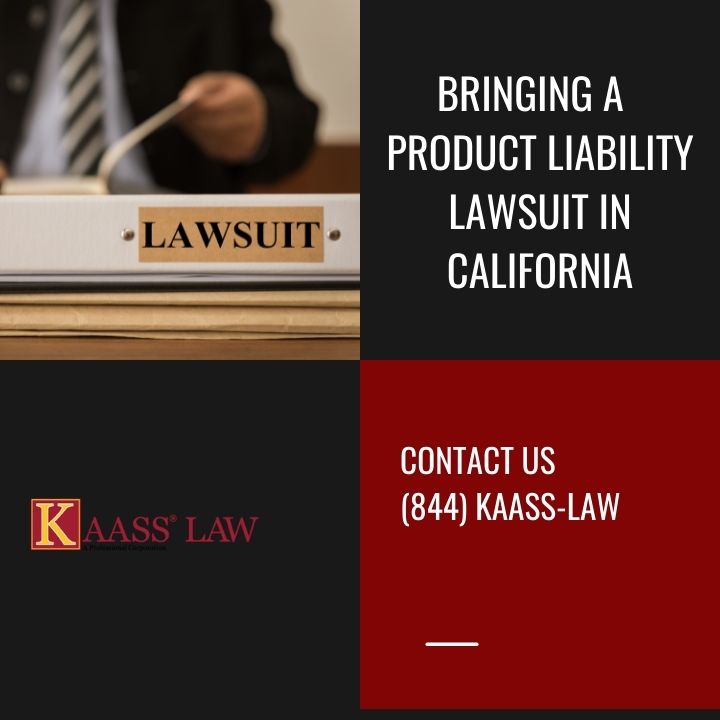The harms a person sustains as a result of a defective product are the focus of a product liability case. A medication, toy, electronic gadget, or anything else could be the product. The crucial factor is that the product must be faulty or malfunction in some way, causing harm to someone. There are regulations in place to give people legal remedies because unsafe and defective items injure thousands of people every year
Elements the Plaintiff Must Prove During a Product Liability Lawsuit
To win a case for products liability in California, the plaintiff has to be able to prove the following elements:
- Defendant designed, distributed, manufactured, or sold a defective product
- The product contained the defect when it left the defendant’s possession
- Plaintiff used the product in a reasonably foreseeable manner
- As a result of the defect, the plaintiff suffered harm
Strict Product Liability in California
Usually, a defendant must have acted (or omitted to act) with gross negligence, recklessness, or malice in order to be held accountable for a plaintiff’s injuries. However, in some cases, a defendant could be strictly accountable for the plaintiff’s injuries even though they were not their fault.
Anyone who produces or sells a product that is riskier than it ought to be is in violation of California law. Strict liability exists for any injuries of using the product in a manner that is reasonably foreseeable, or that fails to provide adequate warnings.
Types of Claims Under Strict Product Liability
Liability claims for defective products can occur on the basis of negligence, strict liability, or a breach of the warranty of fitness. Because there is no federal products liability legislation, this will usually depend on the jurisdiction. Because of this lack of consistency, the US Department of Commerce published the Model Uniform Products Liability Act (MUPLA). Which attempts to promote uniform processes for the products liability tort.
There are essentially three types of claims under strict product liability:
- Manufacturing defect claims, which involve a defect in a specific item produced
- Design defect claims, which involve a defect in the design of an entire product line
- Failure to warn claims, which involve the defendant’s liability
Manufacturing Defect Claims
In manufacturing defects claims, the plaintiff asserts that a specific product was defectively manufactured as compared to products in the same line. So, the product presented harm which actually was a result of the manufacturing defects.
Design Defect Claims
A lawsuit based on a product’s poor design is the first sort of product liability claim. In a legal case based on defective design, the plaintiff claims that the product is inherently unsafe due to its design rather than a manufacturing error.
In California there are two tests used in assessing defective design product liability claims:
- The Risk-Benefit Test
According to this test, after the plaintiff shows that the defective product design caused the injuries, the burden of proof completely shifts to the defendant. The defendant must prove that the utility of the defective product design outweighs the risk of the design. If he fails to do that, then the plaintiff will win the case.
- The Consumer Expectations Test
According to this test, a product’s design will be defective in case it fails to perform as safely as an ordinary consumer would expect it to perform.
Failure to Warn Claim
According to California’s strict product liability, a defendant who is aware that the consumer is using the product in a reasonably foreseeable manner. Will be eligible to warn the consumer of the risk of injury or harm if exposes him to a risk of injuries is eligible to warn the consumer of the risk of injury or harm.
The defendant can be liable for a failure to warn when such failure could have a different outcome. So, in case a typical consumer would have become aware of the risk of injuries or harm on his own, then the defendant can’t be liable for failing to warn of an already-known hazard.
Glendale Personal Injury Lawyer
Contact our Glendale personal injury lawyer today for a consultation and case review. Please feel free to give our office a call at 310.943.1171.

